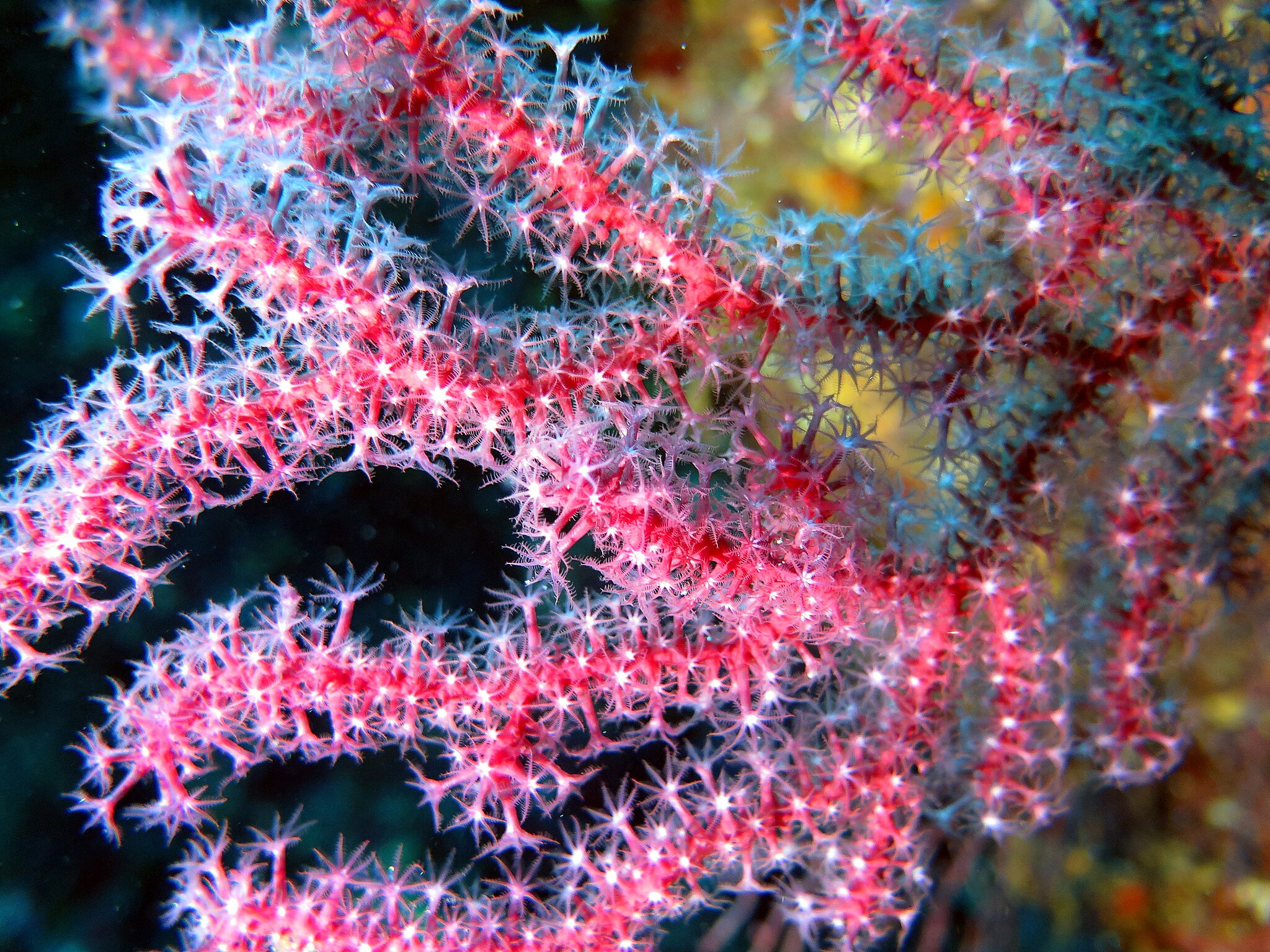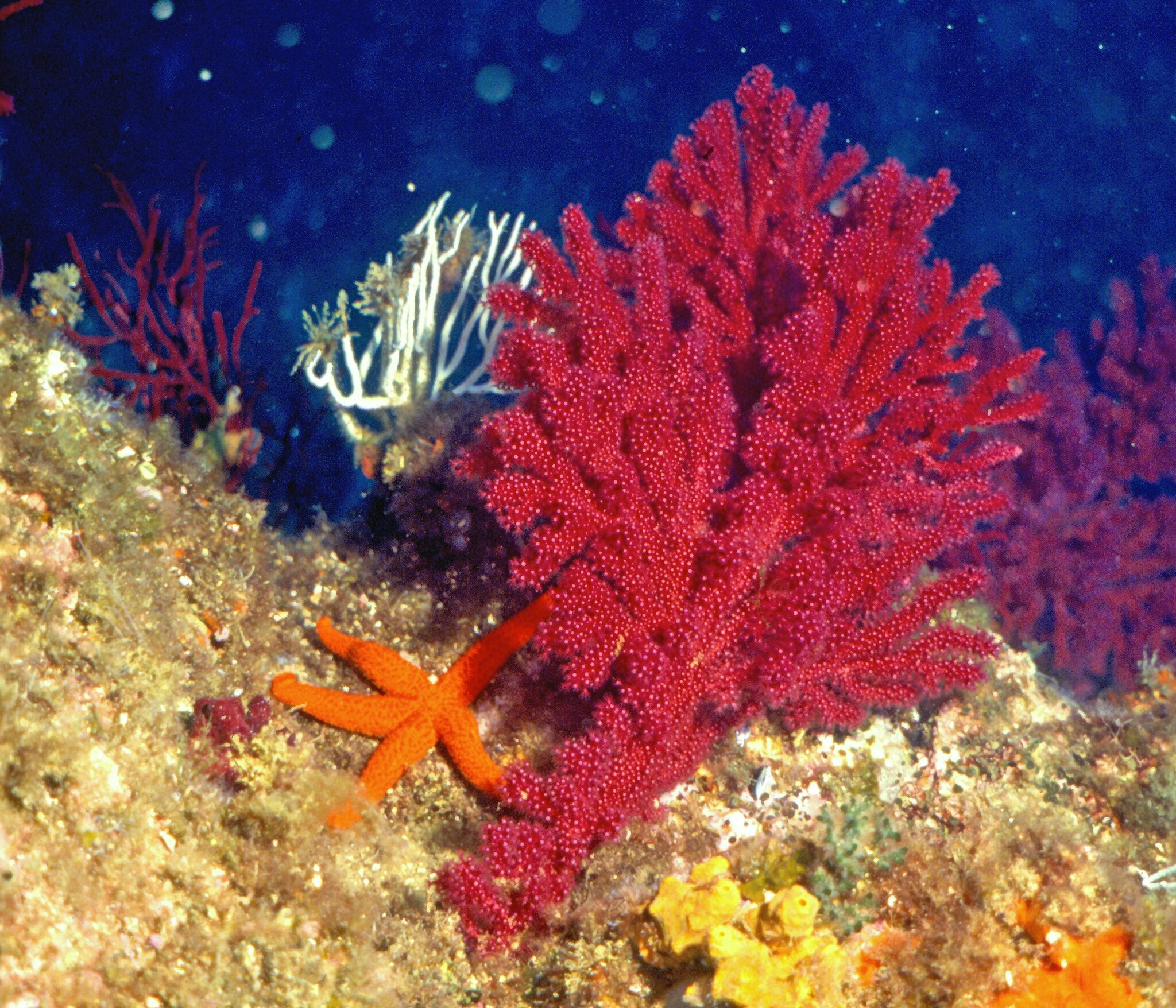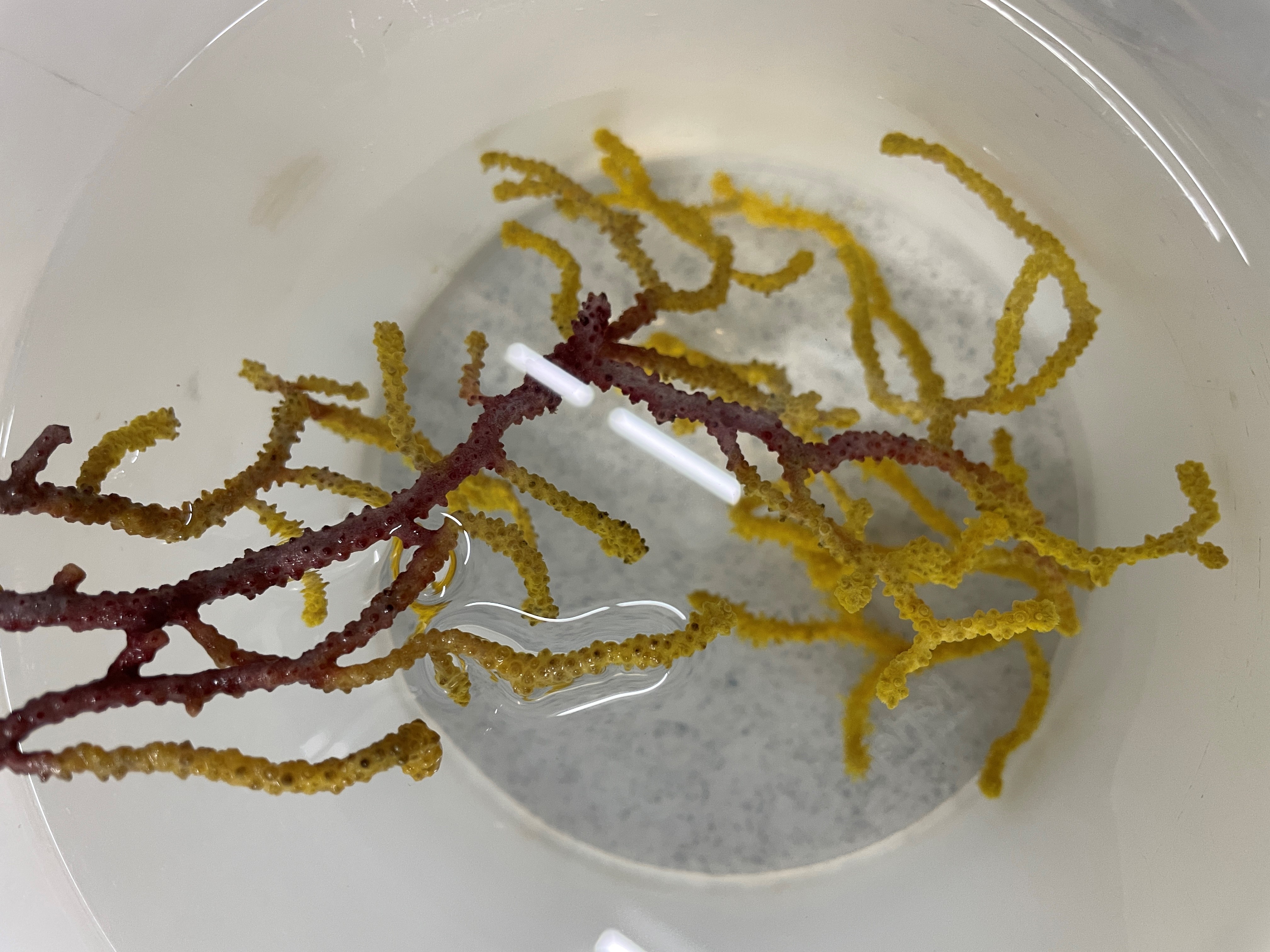The coral microbiome impacts its survival in the face of the climate crisis
The coral microbiome impacts its survival in the face of the climate crisis
A study led by the Institute of Evolutionary Biology (IBE) and the University of Miami Rosenstiel School of Marine, Atmospheric, and Earth Science, has successfully linked the mortality of Mediterranean marine corals during heatwaves to the presence of a parasite in their microbiome.
The research also identifies a unicellular microorganism that could enhance the resistance of corals to thermal stress.
The study results present a new monitoring tool useful for contributing to marine conservation efforts worldwide in the face of the climate crisis.

During the heatwaves of the summers of 2022 and 2023, the Mediterranean reached historically high temperatures, occasionally exceeding 30 °C. The climate crisis is behind this increase in the frequency of marine heatwaves, which are the main cause of massive biodiversity mortality on our coasts.
Among the many affected species is the red gorgonian, one of the most charismatic corals in our seas and known for being an ecosystem architect in the temperate reefs of the Mediterranean. Unfortunately, its populations have dangerously decreased in recent decades due to rising temperatures.
Now, a study led by the Institute of Evolutionary Biology (IBE), a joint center of the Spanish National Research Council (CSIC) and Pompeu Fabra University (UPF), and the University of Miami Rosenstiel School of Marine, Atmospheric, and Earth Science, has demonstrated the relationship between the mortality of the red gorgonian during temperature increases and the presence of corallicolids, unicellular microorganisms closely related to the malaria parasite, in its microbiome.
The team has also discovered a second microorganism that inhabits the gorgonians and increases their resistance to thermal stress. The results could help identify vulnerable corals to future heatwaves, contributing to the conservation of marine biodiversity in the face of the climate crisis.

Identification of a microorganism that increases the host's susceptibility to thermal stress
Paramuricea clavata, commonly known as the red gorgonian, is one of the most charismatic corals in the Mediterranean. Its sensitivity to thermal stress can vary among individuals, but the reason was unknown until now.
To discover it, a team led by researchers from IBE sampled 148 P. clavata corals belonging to 12 populations at various points in the Mediterranean, including the Italian, Croatian, and Catalan coasts. Subsequently, they identified their microbiome - the microorganisms that inhabit them - and subjected them to thermal stress.
The results reveal that corallicolids, unicellular microorganisms related to the malaria parasite, worsen the health of corals subjected to high temperatures. "We have been able to establish a significant relationship between the composition of the microbiome inhabiting the corals and their sensitivity to thermal stress," comments Javier del Campo, lead researcher at the IBE and study coordinator.
This correlation could be a monitoring tool for corals threatened by heatwaves worldwide, as it could help predict coral mortality based on the analysis of the microorganisms that make up their microbiome.

A second symbiont could favor coral resistance to thermal stress
The analysis of coral microbiomes was conducted using a new DNA detection technique to identify eukaryotic microorganisms within animal hosts. This revealed a higher proportion of syndiniales - a well-known group of parasites of marine organisms - in corals resistant to thermal stress.
"This could be because syndiniales would be parasitizing corallicolids, which make corals more sensitive to thermal stress, ultimately benefiting the coral. However, more studies are needed to confirm this hypothesis," comments del Campo, also adjunct assistant professor at the Rosenstiel School. "Investigating these relationships can be crucial for the protection of corals and the biodiversity they sustain, in the Mediterranean and worldwide."
Protists, the planet's most unknown eukaryotes
Syndiniales and corallicolids are part of protists, the most numerous and diverse eukaryotic microorganisms on the planet that form their own kingdom separate from fungi, animals, and plants. They also inhabit our intestines and interact with our metabolism. Although the study results show that these symbionts can impact the health of the host, the difficulty of cultivating them in the laboratory has limited their study to date.
"The new DNA detection techniques we have developed and applied in the study have allowed us to characterize these microorganisms, as common as they are unknown. This genetic tool could help us protect marine biodiversity but also investigate the role that protists play in human health," concludes del Campo.
Referenced article:
Bonacolta, Anthony & Miravall, Jordi & Gómez-Gras, Daniel & Ledoux, Jean-Baptiste & López-Sendino, Paula & Garrabou, Joaquim & Massana, Ramon & del Campo, Javier. (2023). Differential apicomplexan presence predicts thermal stress mortality in the Mediterranean coral Paramuricea clavata. Environmental Microbiology. DOI: https://doi.org/10.1111/1462-2920.16548
